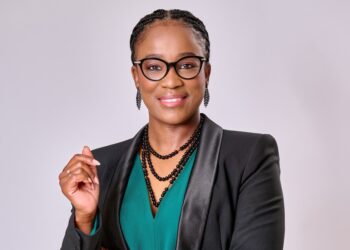
The concept of the green economy has extended prevalent acceptance and traction
since the global financial crisis of 2008. The idea of assembling economies, societies, education, and training for climate change was reaffirmed at the United Nations 21st Conference of Parties in Paris in 2015 now known as the Paris Agreement.
A green economy transition without the patronage of robust, operative and dynamic institutions would not lead to broad-based advancements that is socially all-encompassing, resource proficient and environmentally sustainable.
Some of the key segments within the Green Economy are sustainable agriculture, renewable energy, water, sustainable transport and natural resource management. Foreign direct investments steered towards the Green Economy will not only meet the demands for electricity and sustainable agriculture but will augment infrastructure that are socially inclusive.
This transition will make Africa less reliant on international fuel markets and much more efficient on international trade regarding Carbon Taxes. Carbon Tariff Policies seeks to disincentivise fossil fuel use in industries and decarbonise trade. This could significantly constrain Africa’s trade and slow industrialisation progress in the interim but have long lasting benefits within the Green Economy. Green fiscal policy reforms will improve fiscal outcomes in the long term, hence Governments may need to mitigate the impacts of green economy policies on certain communities that are vulnerable
Funding remain the principal block to scaling up green economy investments. The onus rests with African Goverments to implement Green fiscal policy reforms, which will aid economic outcomes but also boost the process of attracting Green Investment. When green investment reaches a particular scale, we should vigorously explore innovative investment means and areas that strives to achieve fiscal benefits while also bearing in mind environmental and social welfares, thereby endorsing viable development.
For industrious green investment, the sequence of economic benefits needs to be shortened and the pace of green innovation accelerated and implemented, in hindsight that Africans must be involved within the value chain of innovative green technology, hence literally be part of the value add process. At the same time, cooperation between Sub-Saharan Africa through AfCFTA should be reinforced to augment the scale effect of green industry development and uphold the quality and efficiency of the overall economy.
An increasing youth populace in Africa, as well as urbanization, puts pressure on African Governments to generate new jobs. Around 70 per cent of the population in Africa are under 30 and an estimated 11 million youth are anticipated to juncture the labour market every year, this necessitates millions of trades to be created within the novice green economy which will be the frontier for driving industrialization in the forthcoming decades.
Schools and Varsities in Africa must transform curriculums to meet the Green Economic guidelines for sustainable industrial growth, that means African Governments funding steered towards the education sector must priorotise skills and careers required within the Green Economy. Public and Private Sector investments in skills provision for green jobs must be aligned with and supported by sustainable development and other enabling policies. In the same vein companies should requisite to a more holistic standpoint which is supportive of a Green Economy.
Sufficient and accurate data management relating to the Green Economy within African countries remaines the pillar for creating a strong environment for goverment institutions to emerge and engage in a effective green economy. Both capacity building and policy mainstreaming interventions, must rely on up-to-date, precise information and data. A just transition to green industrial development cannot transpire without evidence-based policymaking hence data management becomes critical.
A turnkey operation platform dealing with the interplay of sustainability and industrial development should also be established within African countries. Such a free and easily accessible platform would gather all relevant information related to sustainability and industrial development, such as available technologies per sector, available finance, incentives and support programmes, and current and upcoming decrees, conventions and criterions.
A particular emphasis should also be put on pioneering business models in line with the development of a green and/or social economy. In the longer run, systems for the co-development of policy by government, the private sector, labour and communities should be established.
This should aim to facilitate social dialogue and would not need to be formal systems. Evidence-based research, aimed at levelling the playing field and building a common knowledge base, remains crucial for a socially inclusive sustainable green economy.
*Quinton Amen-Ra Chinuru Adolf is a Published Author of 2 Books, Social Entrepreneur, Thought Leader of “Green Economy 4 Africa” and Project Manager of B1MNP











